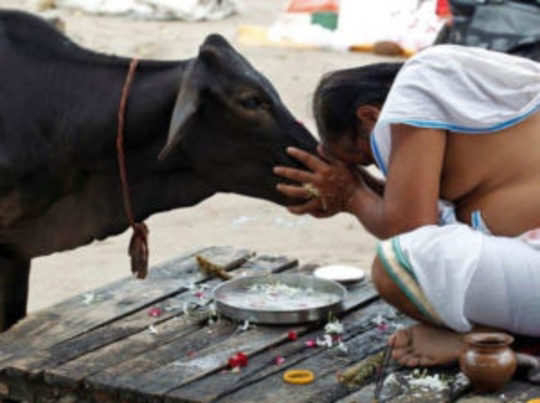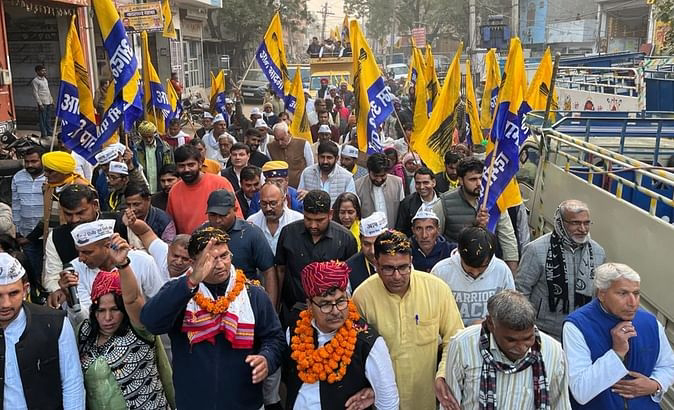Narendra Modi: A Transformative Leader Pioneering India's Progress
Title: Narendra Modi: A Transformative Leader Pioneering India's Progress
Introduction:
Narendra Modi, the 14th Prime Minister of India, has emerged as one of the most influential and charismatic political figures of the 21st century. With his dynamic leadership, Modi has brought significant changes to the socio-economic landscape of India. From his humble beginnings to his rise as a national and global leader, this article delves into the life, achievements, and impact of Narendra Modi.
Early Life and Political Journey:
Narendra Damodardas Modi was born on September 17, 1950, in Vadnagar, a small town in Gujarat, India. As a young boy, he was deeply influenced by the Rashtriya Swayamsevak Sangh (RSS), a Hindu nationalist organization. Modi's early association with the RSS laid the foundation for his political ideology, which blends patriotism, cultural nationalism, and economic development.
Modi's political journey began in the early 1970s when he joined the Bharatiya Janata Party (BJP). He quickly rose through the ranks, demonstrating exceptional organizational skills and a keen understanding of grassroots politics. Modi played a crucial role in the BJP's growth in Gujarat, eventually becoming the state's Chief Minister in 2001.
Gujarat Model of Development:
Modi's tenure as the Chief Minister of Gujarat from 2001 to 2014 is often associated with the "Gujarat Model" of development. Under his leadership, the state witnessed rapid economic growth, infrastructure development, and improvements in various sectors such as agriculture, education, and healthcare. Gujarat became an attractive destination for investments and emerged as one of India's most prosperous states.
Modi's focus on efficient governance, business-friendly policies, and ease of doing business earned him praise as a proactive and visionary leader. The success of the Gujarat Model propelled him onto the national stage, with many seeing him as a potential candidate for the Prime Minister's office.
Prime Ministerial Tenure and Key Reforms:
In May 2014, Narendra Modi led the BJP to a historic victory in the general elections, becoming India's Prime Minister. His tenure has been marked by a series of transformative reforms and initiatives aimed at catalyzing India's progress and improving the lives of its citizens.
One of Modi's flagship programs is the "Make in India" campaign, which aims to boost manufacturing and transform India into a global manufacturing hub. The initiative focuses on attracting foreign direct investment, promoting innovation, and enhancing the ease of doing business in the country.
Another significant reform introduced by Modi is the Goods and Services Tax (GST), which aims to create a unified indirect tax structure across India. The GST replaced a complex web of state and central taxes, streamlining the tax system and promoting a unified market.
Furthermore, Modi's government launched the Pradhan Mantri Jan Dhan Yojana, a financial inclusion program that aims to provide access to banking services and financial literacy to the unbanked population of India. The program has been highly successful, with millions of previously marginalized individuals gaining access to banking services.
Foreign Policy and Global Engagement:
Narendra Modi's foreign policy approach has sought to enhance India's standing on the global stage. He has actively engaged with world leaders, fostering strong diplomatic ties and promoting India's interests abroad. Modi has made numerous visits to countries around the world, strengthening bilateral relationships and exploring new avenues for cooperation.
The "Act East" policy, a key pillar of Modi's foreign policy, focuses on strengthening ties with countries in Southeast Asia and the Asia-Pacific region. It aims to boost economic, political, and cultural cooperation, positioning India as a regional power.
Under Modi's leadership, India has taken an active role in global forums and initiatives. For instance, India became
Introduction:
Narendra Modi, the 14th Prime Minister of India, has emerged as one of the most influential and charismatic political figures of the 21st century. With his dynamic leadership, Modi has brought significant changes to the socio-economic landscape of India. From his humble beginnings to his rise as a national and global leader, this article delves into the life, achievements, and impact of Narendra Modi.
Early Life and Political Journey:
Narendra Damodardas Modi was born on September 17, 1950, in Vadnagar, a small town in Gujarat, India. As a young boy, he was deeply influenced by the Rashtriya Swayamsevak Sangh (RSS), a Hindu nationalist organization. Modi's early association with the RSS laid the foundation for his political ideology, which blends patriotism, cultural nationalism, and economic development.
Modi's political journey began in the early 1970s when he joined the Bharatiya Janata Party (BJP). He quickly rose through the ranks, demonstrating exceptional organizational skills and a keen understanding of grassroots politics. Modi played a crucial role in the BJP's growth in Gujarat, eventually becoming the state's Chief Minister in 2001.
Gujarat Model of Development:
Modi's tenure as the Chief Minister of Gujarat from 2001 to 2014 is often associated with the "Gujarat Model" of development. Under his leadership, the state witnessed rapid economic growth, infrastructure development, and improvements in various sectors such as agriculture, education, and healthcare. Gujarat became an attractive destination for investments and emerged as one of India's most prosperous states.
Modi's focus on efficient governance, business-friendly policies, and ease of doing business earned him praise as a proactive and visionary leader. The success of the Gujarat Model propelled him onto the national stage, with many seeing him as a potential candidate for the Prime Minister's office.
Prime Ministerial Tenure and Key Reforms:
In May 2014, Narendra Modi led the BJP to a historic victory in the general elections, becoming India's Prime Minister. His tenure has been marked by a series of transformative reforms and initiatives aimed at catalyzing India's progress and improving the lives of its citizens.
One of Modi's flagship programs is the "Make in India" campaign, which aims to boost manufacturing and transform India into a global manufacturing hub. The initiative focuses on attracting foreign direct investment, promoting innovation, and enhancing the ease of doing business in the country.
Another significant reform introduced by Modi is the Goods and Services Tax (GST), which aims to create a unified indirect tax structure across India. The GST replaced a complex web of state and central taxes, streamlining the tax system and promoting a unified market.
Furthermore, Modi's government launched the Pradhan Mantri Jan Dhan Yojana, a financial inclusion program that aims to provide access to banking services and financial literacy to the unbanked population of India. The program has been highly successful, with millions of previously marginalized individuals gaining access to banking services.
Foreign Policy and Global Engagement:
Narendra Modi's foreign policy approach has sought to enhance India's standing on the global stage. He has actively engaged with world leaders, fostering strong diplomatic ties and promoting India's interests abroad. Modi has made numerous visits to countries around the world, strengthening bilateral relationships and exploring new avenues for cooperation.
The "Act East" policy, a key pillar of Modi's foreign policy, focuses on strengthening ties with countries in Southeast Asia and the Asia-Pacific region. It aims to boost economic, political, and cultural cooperation, positioning India as a regional power.
Under Modi's leadership, India has taken an active role in global forums and initiatives. For instance, India became



Comments